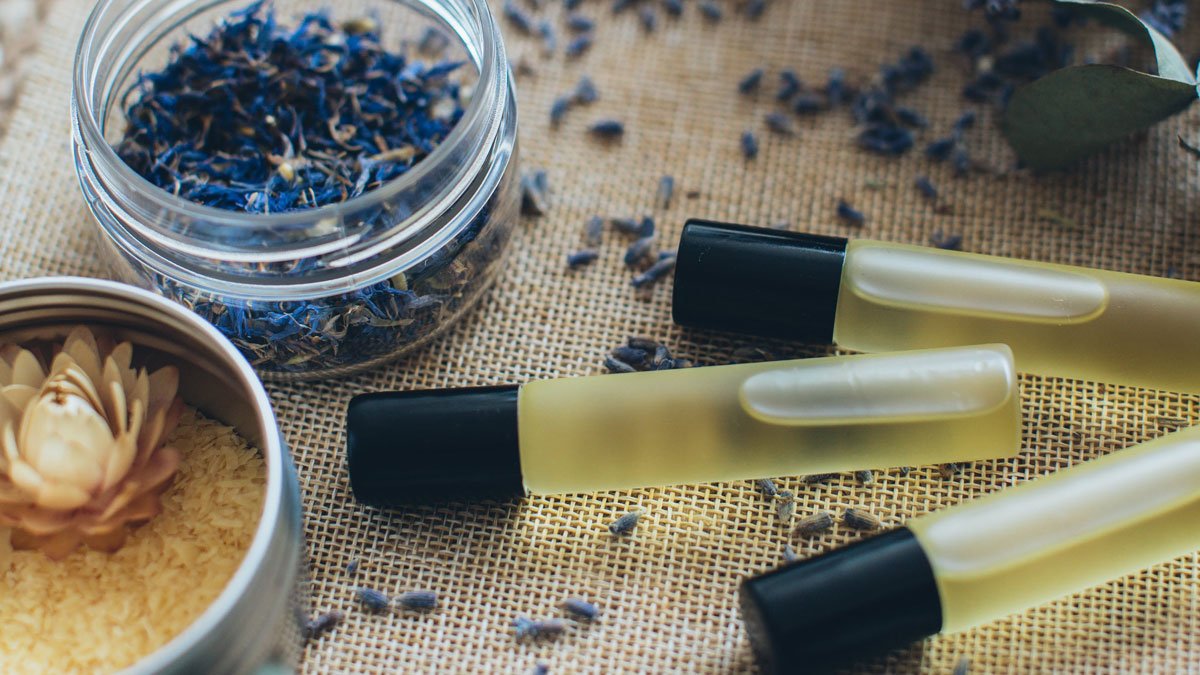Anxiety is a common mental health issue affecting millions of people worldwide. It’s characterized by feelings of worry, fear, or unease that can interfere with one’s daily activities. However, there are several natural ways to manage and overcome anxiety. This article will explore these methods and provide some real-world data on anxiety prevalence.
Understanding Anxiety
Anxiety is your body’s natural response to stress. It’s a feeling of fear or worry that could be caused by a variety of factors, ranging from genetics to environment to brain chemistry. Symptoms can include increased heart rate, rapid breathing, restlessness, and trouble concentrating.
Prevalence of Anxiety
Anxiety disorders are the most prevalent mental health condition. In the United States alone, it was estimated that in 2018 roughly 31 million men and 45.2 million women suffered from an anxiety disorder. Globally, anxiety is estimated to affect 264 million persons, with 179 million (63%) of these adults being female, whereas 105 million (35%) were male.
In the case of children, 9.4% of children aged 3-17 years (approximately 5.8 million) had diagnosed anxiety in 2016-2019. By 2020, 5.6 million kids (9.2%) had been diagnosed with anxiety problems.
Natural Remedies for Anxiety
- Be Physically Active
Regular exercise benefits not only your physical health, but also your mental health. A physically active lifestyle can lower the risk of developing anxiety disorders by about 60%. - Take Balanced Diet
Maintaining a well-rounded diet could significantly reduce anxiety symptoms. Consuming foods rich in omega-3 fatty acids, magnesium, and vitamins B and D can help reduce anxiety symptoms. - Reduce your Caffeine and Alcohol intake
Caffeine is well-known as an anxiety inducer. Similarly, while alcohol may initially seem to relax you, it can actually increase feelings of anxiety as it wears off.
- Think about quitting Smoking Cigarettes
Quitting smoking cigarettes can significantly reduce anxiety symptoms, even in the short term. If you’re struggling with anxiety, quitting smoking is one of the best things you can do for your mental health. - Make getting a good night’s sleep a top priority
While nearly a third of adults get less than 6 hours of sleep a night, the CDC recommends that adults get 7 or more hours of sleep each day to reduce anxiety symptoms. Making getting a good night’s sleep a top priority can help reduce anxiety symptoms, even in the short term. If you’re struggling with anxiety, one of the best things you can do for your mental health is to make sure you’re getting enough sleep. - Shinrin Yoku (Forest Bathing)
 Shinrin Yoku, or forest bathing, is a Japanese practice that involves spending time in nature, consciously connecting with the sights, sounds, smells, and textures of the forest environment. There is a growing body of research that suggests that Shinrin Yoku can have a number of health benefits, including reducing anxiety. For example, a study published in the journal Environmental Health and Preventive Medicine found that participants who spent two hours walking in a forest environment showed a significant decrease in salivary cortisol, a hormone that is released in response to stress.
Shinrin Yoku, or forest bathing, is a Japanese practice that involves spending time in nature, consciously connecting with the sights, sounds, smells, and textures of the forest environment. There is a growing body of research that suggests that Shinrin Yoku can have a number of health benefits, including reducing anxiety. For example, a study published in the journal Environmental Health and Preventive Medicine found that participants who spent two hours walking in a forest environment showed a significant decrease in salivary cortisol, a hormone that is released in response to stress.
Another study, published in the journal Frontiers in Psychology, found that participants who spent three days in a forest environment showed a significant decrease in anxiety symptoms, as well as an improvement in mood and cognitive function.
If you are struggling with anxiety, consider giving Shinrin Yoku a try. It is a simple and free activity that can be enjoyed by people of all ages and fitness levels. Simply find a quiet spot in nature and spend some time connecting with the natural environment around you.
(Make sure to take common precautions while roaming through the forest, as there may be wild animals, venomous snakes, and other hazards..) - Practice Mindfulness and Meditation
Mindfulness and meditation can help manage anxiety by focusing your mind on the present moment and reducing worrying thoughts. - Aromatherapy
 Aromatherapy, a holistic healing treatment that uses natural plant extracts to promote health and well-being, is gaining recognition as a non-invasive, relaxing method for managing anxiety. Essential oils, the heart of aromatherapy, are extracted from plants and have been used for centuries to enhance physical and mental health. Lavender, chamomile, and ylang-ylang are among the oils often used to reduce anxiety and stress. These oils can be inhaled directly, diffused in a room, or used during a massage, providing a soothing experience that calms the mind and body. While aromatherapy is not a cure-all, it can be a beneficial part of an overall strategy for managing anxiety. As with any treatment, it’s important to consult with a healthcare provider before starting aromatherapy.
Aromatherapy, a holistic healing treatment that uses natural plant extracts to promote health and well-being, is gaining recognition as a non-invasive, relaxing method for managing anxiety. Essential oils, the heart of aromatherapy, are extracted from plants and have been used for centuries to enhance physical and mental health. Lavender, chamomile, and ylang-ylang are among the oils often used to reduce anxiety and stress. These oils can be inhaled directly, diffused in a room, or used during a massage, providing a soothing experience that calms the mind and body. While aromatherapy is not a cure-all, it can be a beneficial part of an overall strategy for managing anxiety. As with any treatment, it’s important to consult with a healthcare provider before starting aromatherapy.
Can You Overcome Anxiety Yourself?
While self-management strategies can be effective for mild cases of anxiety, more severe or persistent forms may require professional help. A recent study found that not only can individuals with Generalized Anxiety Disorder (GAD) make a full recovery, but 40 percent go on to have excellent mental health, with high levels of life satisfaction and happiness.
But keep in mind, everyone’s journey with anxiety is different. What helps one individual might not be effective for another. If self-management strategies aren’t enough, don’t hesitate to seek professional help.
Conclusion
Anxiety is a usual problem impacting millions of individuals globally. However, there are many natural ways to manage and overcome this condition. From staying active and maintaining a balanced diet to practicing mindfulness and limiting caffeine intake, these strategies can help alleviate symptoms and improve quality of life.
Remember: It’s okay to ask for help if you need it. You’re not alone in your journey towards overcoming anxiety.



 Shinrin Yoku, or forest bathing, is a Japanese practice that involves spending time in nature, consciously connecting with the sights, sounds, smells, and textures of the forest environment. There is a growing body of research that suggests that Shinrin Yoku can have a number of health benefits, including reducing anxiety. For example, a study published in the journal Environmental Health and Preventive Medicine found that participants who spent two hours walking in a forest environment showed a significant decrease in salivary cortisol, a hormone that is released in response to stress.
Shinrin Yoku, or forest bathing, is a Japanese practice that involves spending time in nature, consciously connecting with the sights, sounds, smells, and textures of the forest environment. There is a growing body of research that suggests that Shinrin Yoku can have a number of health benefits, including reducing anxiety. For example, a study published in the journal Environmental Health and Preventive Medicine found that participants who spent two hours walking in a forest environment showed a significant decrease in salivary cortisol, a hormone that is released in response to stress. Aromatherapy, a holistic healing treatment that uses natural plant extracts to promote health and well-being, is gaining recognition as a non-invasive, relaxing method for managing anxiety. Essential oils, the heart of aromatherapy, are extracted from plants and have been used for centuries to enhance physical and mental health. Lavender, chamomile, and ylang-ylang are among the oils often used to reduce anxiety and stress. These oils can be inhaled directly, diffused in a room, or used during a massage, providing a soothing experience that calms the mind and body. While aromatherapy is not a cure-all, it can be a beneficial part of an overall strategy for managing anxiety. As with any treatment, it’s important to consult with a healthcare provider before starting aromatherapy.
Aromatherapy, a holistic healing treatment that uses natural plant extracts to promote health and well-being, is gaining recognition as a non-invasive, relaxing method for managing anxiety. Essential oils, the heart of aromatherapy, are extracted from plants and have been used for centuries to enhance physical and mental health. Lavender, chamomile, and ylang-ylang are among the oils often used to reduce anxiety and stress. These oils can be inhaled directly, diffused in a room, or used during a massage, providing a soothing experience that calms the mind and body. While aromatherapy is not a cure-all, it can be a beneficial part of an overall strategy for managing anxiety. As with any treatment, it’s important to consult with a healthcare provider before starting aromatherapy.